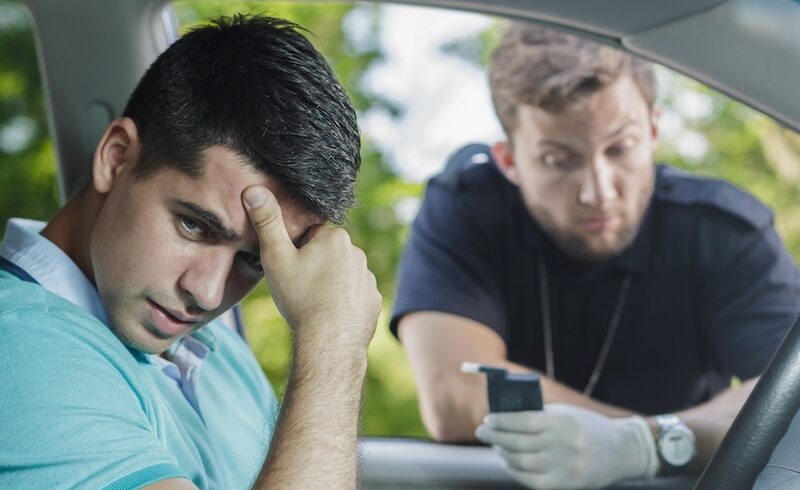
Do you know what actions can lead to a suspension or revocation of your driver’s license?
A state driver’s license represents your personal freedom. Without one, you can’t move, work, or travel as freely as you might like. Simply having a suspended license can leave your personal or work life in chaos.
Although the state of Illinois has taken steps to lower the number of license suspensions, that doesn’t mean you’re in the clear. It’s important to know what violations can cause you to lose your license, as well as the difference between a revocation and a suspension.
Whenever you have questions about traffic laws in Illinois, your best bet is to consult a lawyer directly. But to help you get started, we’ve put together this handy guide.
The Difference Between a License Suspension and Revocation
There are several reasons that the Illinois Secretary of State may suspend or revoke someone’s driver’s license. We’ll explain what those reasons are next. First, let’s discuss the difference between a suspension and a revocation.
Driver’s License Suspension
A license suspension usually lasts from three months to one year. Once your suspension ends, you will need to pay a reinstatement fee. After that, you should regain your driving privileges automatically.
You may need to meet other conditions before having your license fully instated. For example, you might have to complete a remedial driving course first. This depends on the reasons your license was suspended.
Driver’s License Revocation
Having your license revoked is much more serious than having it suspended. A revocation lasts for a minimum of one year. The exact amount of time depends on the violation and any past criminal activity.
The termination date for your revocation is called your projected eligibility date. At that time, you’ll need to appear before the Secretary of State for a hearing to regain your driving privileges.
Hearings are often complicated and denials are common. However, even if aren’t given full driving privileges, you may be able to apply for a restricted driving permit or a probationary permit.
In some cases following a revocation, you may be required to drive with a breath alcohol ignition interlock device (or BAIID). A BAIID may be required for as long as five years before you’re considered eligible for unrestricted driving again.
Reasons Your License Can be Suspended in Illinois
There are more reasons to suspend someone’s license than there are to revoke it. You may have your driver’s license suspended for a period of time if you’re convicted of any of the following:
- Driving without a driver’s license
- Driving with an invalid driver’s license
- Driving a vehicle you aren’t licensed for (for example, driving a motorcycle without a motorcycle license)
- Possessing, displaying, or attempting to use someone else’s license, permit, or ID
- Permitting fraudulent or unlawful use of your driver’s license
- Alteration or fraudulent use of a handicapped parking placard or license plates
- Committing two violations of transportation or possession of alcohol in a vehicle
- Refusing chemical testing after a DUI arrest
- Being found with a blood alcohol content of .08 or greater, or any amount of drug substance or compound resulting from unlawful consumption
- Causing a death or injury requiring immediate medical treatment while operating a vehicle illegally
- Fleeing or trying to elude the police
- Fleeing the scene of a property damage accident involving over $1,000 in damages
- Passing a school bus while loading or unloading
- Committing three moving violations within a 12-month period, resulting in a total number of points below that required for license revocation (if you are 21 years old or older)
- Committing any offense in another state that would be grounds for suspension in Illinois
If you’re under the age of 21, you may have your license suspended if you are convicted of any of the following:
- Committing two moving violations within a 24-month period, resulting in a total number of points below that required for license revocation
- Possessing or transporting open alcohol in a vehicle
- Possessing alcohol
As mentioned earlier, suspensions typically last from three months to one year, depending on the violation.
Reasons Your License Can be Revoked in Illinois
There aren’t as many violations that can cause your license to be revoked, and several of them are serious crimes. You may have your driver’s license revoked if you’re convicted of any of the following:
- Driving under the influence (DUI)
- Committing reckless homicide
- Fleeing the scene of an accident involving death or injury
- Committing three offenses of reckless driving within a 12-month period
- Committing three or more moving violations (two or more if you’re under 21 years old), resulting in a total number of points that requires revocation rather than suspension
- Drag or street racing
- Aggravated fleeing and eluding the police
- Operating a commercial vehicle while your driving privileges are suspended, revoked, canceled, or subject to disqualification
- Being found possessing or transporting alcohol in a vehicle two times (if you’re under 21 years old)
As you can see, the reasons for revoking a license are all serious violations. As long as you drive responsibly and carefully, you shouldn’t need to worry about having your license revoked.
Avoid License Suspensions and Revocations
Now you know the difference between license suspensions and revocations. As long as you avoid the actions and violations listed here, you should avoid getting a suspended or revoked driver’s license.
However, if you’re an Illinois resident who lost your driving privileges, or an out-of-state resident with an Illinois hold on your license, we can help.
John M. Quinn & Associates has helped thousands of people retake control over their lives with license reinstatement. For traffic law advice and representation, contact us today for a free 30-minute consultation.


